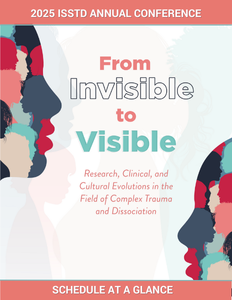Back
Posters
Poster Judging Hour
The Impact of Different Trauma Exposures on Mental Health Status and Help-Seeking Attitudes
Friday, March 14, 2025
6:00 PM – 7:00 PM US Eastern Time
- NB
Nimrat Brar
MA Candidate
California State University, Los Angeles
Abstract
Over 70% of the global population is estimated to experience at least one traumatic event in their lifetime (Benjet et al., 2015). However, research investigating how different types of traumatic exposures impact individuals is limited. Research suggests that ethnic minorities encounter trauma more often but are less likely to develop post-traumatic stress disorder (PTSD) than other groups (López, 2017). This study utilized a survey to examine the association between different types of trauma exposures, mental health status, and help-seeking attitudes among 324 Muslim American young adults aged 18-25. The Cumulative Trauma Scale - Short Form measured seven traumatic exposures: collective identity, personal identity, survival trauma, gender discrimination, uprootedness, secondary trauma, and community violence. Participants’ symptoms were measured for PTSD, depression, anxiety, and substance abuse. Participants also reported their perceived helpfulness of prior mental health treatment (if obtained) and their willingness to seek help. Preliminary analyses revealed that personal identity trauma and gender discrimination positively predicted depression, b = .87, SE = .40, p = .031 and b = 1.49, SE = .48, p = .002, respectively. Gender discrimination and secondary trauma positively predicted anxiety, b = 1.48, SE = .42, p < .001 and b = .48, SE = .24, p = .046, respectively. Uprootedness negatively predicted substance use, b = -.41, SE = .18, p = .024. Personal identity trauma positively predicted PTSD, b = .24, SE = .11, p = .034. With respect to help-seeking, uprootedness positively predicted perceived helpfulness of past treatment, b = .35, SE = .12, p = .005, while survival trauma was a significant negative predictor, b = -.12, SE = .05, p = .012. Gender discrimination negatively predicted general help-seeking intentions, b = -.18, SE = .06, p = .002. Implications for trauma-informed mental health interventions tailored to underrepresented populations will be discussed.
Over 70% of the global population is estimated to experience at least one traumatic event in their lifetime (Benjet et al., 2015). However, research investigating how different types of traumatic exposures impact individuals is limited. Research suggests that ethnic minorities encounter trauma more often but are less likely to develop post-traumatic stress disorder (PTSD) than other groups (López, 2017). This study utilized a survey to examine the association between different types of trauma exposures, mental health status, and help-seeking attitudes among 324 Muslim American young adults aged 18-25. The Cumulative Trauma Scale - Short Form measured seven traumatic exposures: collective identity, personal identity, survival trauma, gender discrimination, uprootedness, secondary trauma, and community violence. Participants’ symptoms were measured for PTSD, depression, anxiety, and substance abuse. Participants also reported their perceived helpfulness of prior mental health treatment (if obtained) and their willingness to seek help. Preliminary analyses revealed that personal identity trauma and gender discrimination positively predicted depression, b = .87, SE = .40, p = .031 and b = 1.49, SE = .48, p = .002, respectively. Gender discrimination and secondary trauma positively predicted anxiety, b = 1.48, SE = .42, p < .001 and b = .48, SE = .24, p = .046, respectively. Uprootedness negatively predicted substance use, b = -.41, SE = .18, p = .024. Personal identity trauma positively predicted PTSD, b = .24, SE = .11, p = .034. With respect to help-seeking, uprootedness positively predicted perceived helpfulness of past treatment, b = .35, SE = .12, p = .005, while survival trauma was a significant negative predictor, b = -.12, SE = .05, p = .012. Gender discrimination negatively predicted general help-seeking intentions, b = -.18, SE = .06, p = .002. Implications for trauma-informed mental health interventions tailored to underrepresented populations will be discussed.

